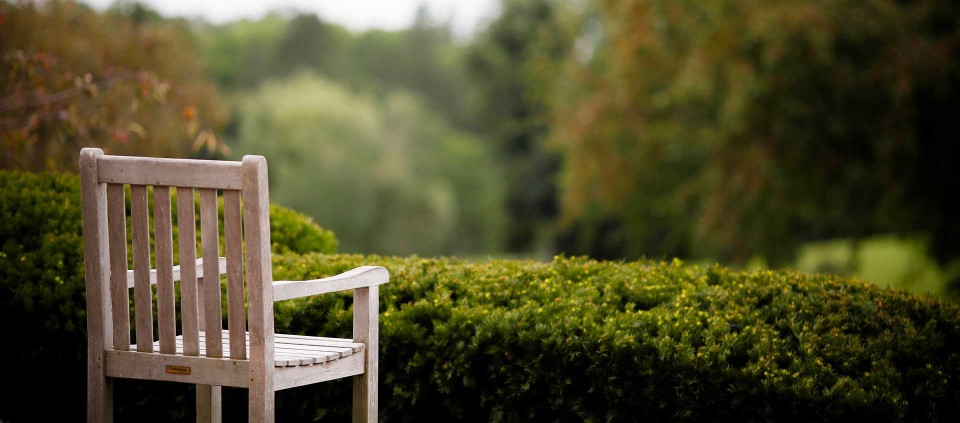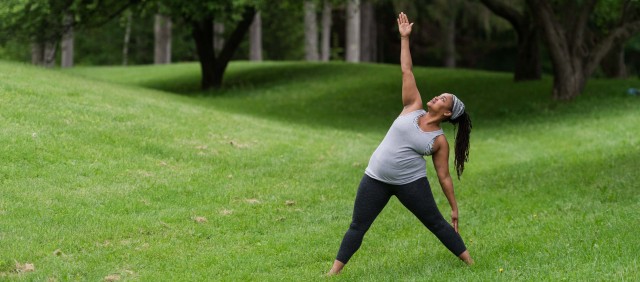Loneliness and Solitude in Self-Isolation

May 13, 2020
by Tiffany Chan
There is a difference between
loneliness and solitude
one will empty you and one will fill you.
You have the power to choose
—Ava
There are many things to fear during this pandemic, from financial worries to concerns about ourselves or our loved ones getting sick. For me, as a single person living alone, the “stay at home” order was at the top of my list of fears. I understood the importance of self-isolating, but the idea of not seeing my friends and family for weeks filled me with fear and angst. I would be so alone!
But I’m not alone in this feeling. In a world filled with billions of people, it is incongruous that loneliness is considered an epidemic. Even with the myriad ways we have to communicate, the number of people suffering from loneliness is staggering. Fifty percent of adults in this country report feeling isolated and disconnected, and young people ages 18–22 are, surprisingly, far more likely than senior citizens to report being lonely—making them “the loneliest generation.” The need to self-isolate must only be making this worse.
Loneliness has a negative impact on physical as well as mental health. “More than just being (emotionally) painful, loneliness is also (physically) damaging,” writes Neel Burton in Psychology Today. “Lonely people eat and drink more, and exercise and sleep less. They are at a higher risk of developing psychological problems such as alcoholism, depression, and psychosis, and developing physical problems such as infection, cancer, and cardiovascular disease.”
However, I’ve noticed that the feelings of loneliness don’t depend on whether or not you are alone. I can be in a room full of people who love me and I can still feel rejected and like an outcast. On the other hand, I can be alone in my house and feel a rich connection to my source and all of humanity. It seems to have more to do with my inner perspective toward my aloneness. It seems to be a choice of whether I will see lack or fullness in the situation.
So, how do we cultivate a consistent sense of fullness and connection in self-isolation and beyond?
Being alone does not have to equate to being lonely. It is up to us to choose what attitude to take. It does require mindfulness to adopt the more uplifting path of fullness over lack. There will likely be some down days. But the intention to work toward having a sense of sacred solitude rather than feeling lonely is a worthy goal. Here are some pointers for staying on track.
- Start where you are. Part of the human condition is that sometimes, we are alone. Make peace with your aloneness. Accept that this is your current situation and that this, too, shall pass. Relax with the moment and become friends with it. I’m alone and I am okay. “The practice of solitude is the practice of creating an inward autonomy within ourselves, an inward freedom from the power of these overwhelming thoughts and emotions,” says Buddhist scholar Stephen Batchelor.
- Change how you perceive the situation. Instead of thinking of yourself as a victim of circumstance, see this as a time of choosing how you want to proceed. Is this going to be a time of wallowing in lack, or will you choose to see this as an opportunity to experience yourself filled up with the source of love and connection? Self-isolation gives us multiple opportunities to choose between those options. Alone in my house for days at a time, I could focus on how isolated I am and all that I am lacking.On the other hand, every human on the planet is also suffering from the challenges of the COVID-19 pandemic. We’re all in this together, and our purposeful separation and feelings of mutual care and concern can create a sense of solidarity.
- Clear out blocks. There are many reasons why we might be feeling lonely. While self-isolation could be a current contributing factor, other drivers of loneliness might be a mental health issue that requires professional support; the recent loss of a loved one; or a long-held belief from childhood that you are unworthy to receive love. Regardless of the origin, loving attention is most likely what the lonely place is craving. Ride the waves of grief, despair, or whatever emotion presents itself to you. This is the ultimate in self-care.
- Fill your well. It is an interesting paradox that to enhance our awareness of our interconnection, it is essential to be alone. Aloneness gives us space to fill our personal well with peace, well-being, and the internal—and eternal—source of love. For me, yoga and meditation reliably help me to get there. I close my eyes, focus on my breathing, and relax. I let go of my agenda and see the beauty of how things are. A feeling of love fills my heart and I feel connected to all hearts. At this point, being alone is “sacred solitude.” There is no sense of lack.
- Give back to feel connected. Once you have filled your well with peace and love, it is natural to want to share it. As Deepak Chopra says, “The universe operates through dynamic exchange—giving and receiving are different aspects of the flow of energy in the universe. And in our willingness to give that which we seek, we keep the abundance of the universe circulating in our lives.” Giving your care and attention to people and animals is a wonderful way to remind yourself of your relationship to the tapestry of life. Call a friend; volunteer at a local animal shelter or food bank; give a service away for free.
At the end of yoga practice, we often say “Namaste”: “The light in my heart honors the light in your heart.” It is an honoring of our hearts being connected even as we live separate lives. It speaks to the truth that we are interconnected to each other and to all of life. We are never truly alone, and—although it’s not always easy—we can choose to remember that.
Tiffany Chan, E-RYT 500, has been a Kripalu Yoga teacher since 1995 and is co-owner of Anjali Yoga Teacher Training, LLC. Find out more: tiffanychanyoga.com
